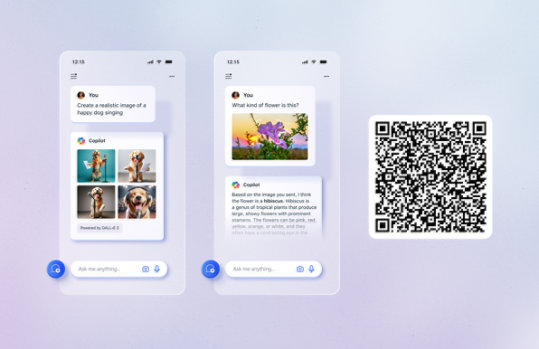Unlock your potential with Microsoft Copilot
Get things done faster and unleash your creativity with the power of AI anywhere you go.

Microsoft Enterprise Library 6
Microsoft Enterprise Library is a collection of reusable application blocks designed to assist software developers with common enterprise development challenges. This release includes: Data Access Block, Exception Handling Block, Logging Block, Policy Injection Block, Semantic Logging Block, Transient Fault Handling Block, Validation Block, and Unity.
Important! Selecting a language below will dynamically change the complete page content to that language.
Version:
6.0
Date Published:
9/28/2023
File Name:
EnterpriseLibrary6-aExpenseRI-source.exe
EnterpriseLibrary6-binaries.exe
EnterpriseLibrary6-QuickStarts-source.exe
EnterpriseLibrary6-source.exe
Microsoft.Practices.EnterpriseLibrary.ConfigConsoleV6.vsix
SemanticLogging-service.exe
File Size:
665.5 KB
1.0 MB
633.9 KB
7.5 MB
725.7 KB
1.0 MB
Microsoft Enterprise Library is a collection of reusable application blocks addressing common cross-cutting concerns. This release includes: Data Access Application Block, Exception Handling Application Block, Logging Application Block, Policy Injection Application Block, Semantic Logging Application Block, Transient Fault Handling Application Block, Validation Application Block, and Unity Application Block.
This major release of Enterprise Library contains many compelling new features and updates that will make developers and IT professionals more productive. Two new application blocks are:- Semantic Logging Application Block
- Transient Fault Handling Application Block (this application block was previously a part of the Enterprise Library Integration Pack for Windows Azure; in this release it has been generalized and updated to the latest technologies)
- New programmatic configuration that doesn’t require a container
- AsynchronousTraceListenerWrapper for the Logging Application Block, which enables existing listeners to write messages asynchronously
- JSON formatter for the Logging Application Block.
- Registration by convention
- Support for NetCore (Windows Store apps)
- Resolving objects of type Lazy<T>
- The Unity assembly is now Security Transparent
- Support for ASP.NET MVC and ASP.NET Web API
Supported Operating Systems
Windows Server 2008 R2, Windows Server 2012, Windows 7, Windows 8
- Supported architectures: x86 and x64.
- Operating systems: Microsoft Windows® 8, Microsoft Windows® 7, Windows Server 2008 R2, Windows Server 2012.
- Supported .NET Frameworks: Microsoft .NET Framework 4.5, .NET for Windows Store Apps (previously known as WinRT) for Unity and Transient Fault Handling Application Blocks.
- Microsoft Visual Studio® 2012 (Professional, Ultimate, or Express editions).
- A database server running a database that is supported by a .NET Framework 4.5 data provider.
- Stores to maintain log messages. If you are using the Message Queuing (MSMQ) Trace Listener to store log messages, you need the Microsoft Message Queuing (MSMQ) components installed. If you are using the Database Trace Listener to store log messages, you need access to a database server. If you are using the E-mail Trace Listener to store log messages, you need access to an SMTP server.
- If you are using the SQL Database Sink to store log messages, you need access to a SQL Server database server. The following are supported: SQL Server 2008 and higher, SQL Server LocalDB, Windows Azure SQL Database.
- If you are using the Windows Azure Sink to store log messages, you need access to a Windows Azure storage account. You must also install the Windows Azure SDK Version 1.8.
- Download the self-extractable zip packages and extract. Review readme instructions included with each package.
- All application blocks are also available as NuGet packages.
